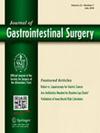研究金培训对当前实践模式和就业市场的影响:对研究金理事会毕业生的调查。
IF 2.2
3区 医学
Q3 GASTROENTEROLOGY & HEPATOLOGY
引用次数: 0
摘要
背景:在过去的几十年里,普通外科发生了显著的变化,需要先进的培训和专业知识。奖学金理事会(FC)每年认可约200名奖学金获得者。本研究旨在分析金融学院毕业生对培训、现行做法和就业市场的看法。方法:于2022年5月至2022年6月通过调查(SurveyMonkey;在2012年至2021年期间,通过电子邮件向2119名FC毕业生分发。结果:调查对象257人。然而,不到一半的受访者(47%)来自培训后的前3年内的外科医生。在受访者中,38%接受过高级胃肠道(GI)微创手术(MIS)培训,26%接受过减肥手术培训,14%接受过前肠手术培训,其余22%接受过肝胆、高级/复杂胃肠道、高级内窥镜检查和结直肠手术培训。大多数受访者进行急症护理手术(ACS)作为他们培训的一部分。值得注意的是,75%的受访者接听ACS电话,55%的受访者不执行他们在奖学金期间接受过培训的一些操作。超过60%的外科医生很难找到工作。结论:尽管有针对性的培训,但仍存在ACS护理需求。高级培训的利用可能不足,或者这可能反映了外科医生如何进入实践并获得经验。就业方面的挑战可能是由于市场饱和、申请人的选择性或COVID-19大流行期间的招聘挑战。大多数接受FC培训的外科医生在他们的培训领域和ACS的一些组成部分进行手术实践。尽管希望聘用接受过奖学金培训的外科医生,但大多数FC毕业生都很难找到工作。本文章由计算机程序翻译,如有差异,请以英文原文为准。
The impact of fellowship training on current practice patterns and the job market: a survey of Fellowship Council graduates
Background
General surgery has changed significantly over the last decades, with the need for advanced training and expertise. The Fellowship Council (FC) accredits fellowships that train approximately 200 fellows annually. This study aimed to analyze FC graduates’ perceptions of training, current practices, and the job market.
Methods
Data were collected between May 2022 and June 2022 via a survey (SurveyMonkey; Momentive Inc) distributed via email to 2119 previous FC graduates from 2012 to 2021.
Results
There were 257 respondents. However, less than half of the respondents (47%) came from surgeons within the first 3 years after training. Of the respondents, 38% had advanced gastrointestinal (GI) minimally invasive surgery (MIS) training, 26% had bariatric surgery training, 14% had foregut surgery training, and the remaining 22% had hepatobiliary, advanced/complex GI, advanced endoscopy, and colorectal surgery training. Most respondents performed acute care surgery (ACS) as part of their training. Of note, 75% of respondents take ACS call, and 55% of respondents do not perform some operations that they trained in during their fellowship. More than 60% of surgeons had difficulty securing employment.
Conclusion
Despite niche training, there exists a demand for ACS care. There may be an underutilization of advanced training, or this may reflect how surgeons enter practice and gain experience. The challenge in obtaining employment may be due to the saturation of the market, selectivity of the applicants, or hiring challenges during the COVID-19 pandemic. Most surgeons who undertook FC training practice surgery within their domains of training and with some components of ACS. Despite the desire to hire fellowship-trained surgeons, most FC graduates experience difficulty securing employment.
求助全文
通过发布文献求助,成功后即可免费获取论文全文。
去求助
来源期刊
CiteScore
5.50
自引率
3.10%
发文量
319
审稿时长
2 months
期刊介绍:
The Journal of Gastrointestinal Surgery is a scholarly, peer-reviewed journal that updates the surgeon on the latest developments in gastrointestinal surgery. The journal includes original articles on surgery of the digestive tract; gastrointestinal images; "How I Do It" articles, subject reviews, book reports, editorial columns, the SSAT Presidential Address, articles by a guest orator, symposia, letters, results of conferences and more. This is the official publication of the Society for Surgery of the Alimentary Tract. The journal functions as an outstanding forum for continuing education in surgery and diseases of the gastrointestinal tract.

 求助内容:
求助内容: 应助结果提醒方式:
应助结果提醒方式:


